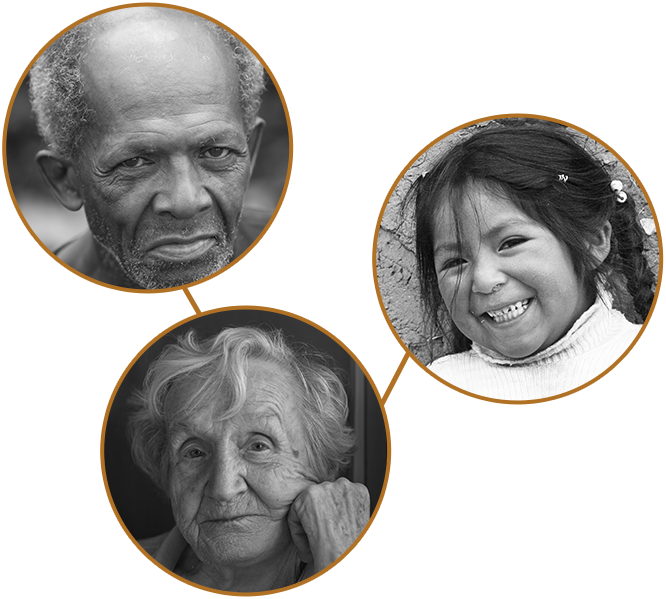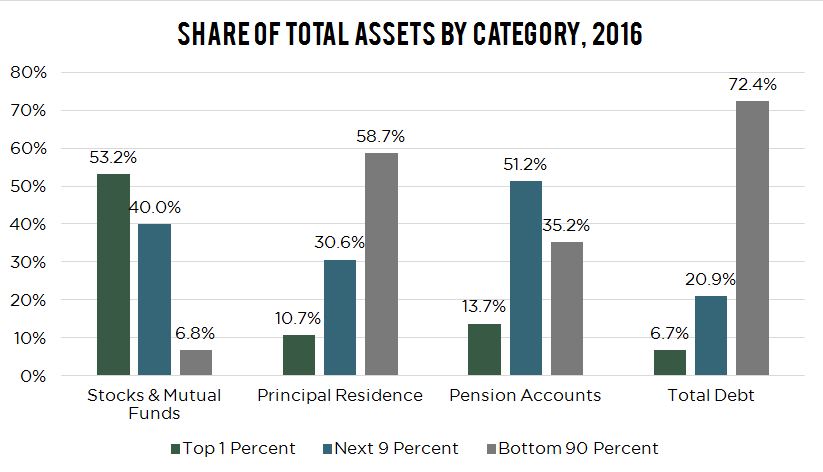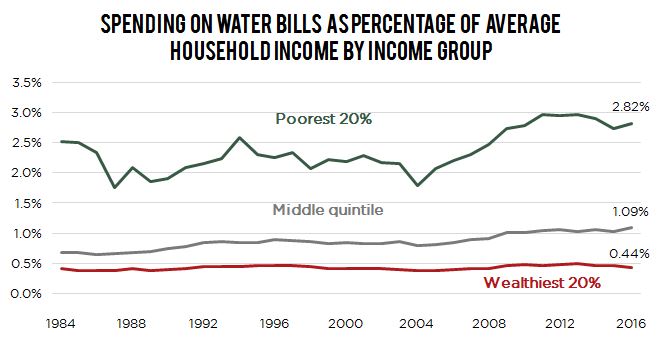The
Souls
of
Poor Folk
Auditing America 50 years after the Poor People’s Campaign challenged racism, poverty, the war economy/militarism, and our national morality

“We must see now that the evils of racism, economic exploitation and militarism are all tied together…you can’t really get rid of one without getting rid of the other.”
-Rev. Dr. King, 1967
The Souls of Poor Folk is an assessment of the conditions and trends of poverty today and of the past fifty years in the United States. In 1967, Rev. Dr. Martin Luther King, Jr., alongside a multiracial coalition of grassroots leaders, religious leaders, and other public figures, began organizing with poor and marginalized communities across racial and geographic divides. Together, The Poor People’s Campaign aimed to confront the underlying structures that perpetuated misery in their midst.
Fifty years later, The Souls of Poor Folk challenges us to take a look at how these conditions have changed since 1968. The stark findings draw from a wide variety of sources, including primary and secondary data as well as interviews with and testimonies by people who have been living through and responding to these changes on the ground. The facts, figures, and faces in these pages counter numerous myths about poverty in our society, including two of the most prevalent:
- “Poverty is the fault of the poor”
This report demonstrates that the structural issues of systemic racism, poverty, the war economy and militarism, and ecological devastation contribute more to poverty than individual failures.
- “Despite our nation’s abundance, there is not enough for all of us to survive and thrive”
This report makes a clear case that the richest nation in the world has sufficient resources to protect the environment and ensure dignified lives for all its people.
One in 13 Black adults is disenfranchised by a felony conviction.
Systemic Racism
In this section, you’ll read about the legislative actions and legal decisions that have severely restricted the ability of people of color, especially poor Black people, Latinx, and Native Americans to participate in the democratic process and afford basic needs. These include “tough on crime” politics that’ve led to increased policing of these communities, spending on deportation and border policies, and other deliberate actions.
Key Findings
- 23 states have adopted some form of voter suppression law since 2010 and 25 states have pre-empted cities from passing minimum wage laws (many in response to successful grassroots living wage campaigns).
- The number of citizens disenfranchised due to felony convictions has tripled, from 2 million in 1968 to 6.1 million in 2016, including one in thirteen Black adults.
- Federal spending on immigration, deportation, and border policies increased from $2 billion to $17 billion and deportations increased tenfold between 1976 and 2015, causing their families to face greater difficulty in affording basic expenses, meeting rent, and paying for utilities.
Poverty
In this section, you’ll read about structural changes in employment towards a low-wage economy, tied to a decline in union membership. These changes — including scaling back government programs, increased housing and healthcare costs, and exploding student debt — have caused massive gains from economic growth to go to a smaller and smaller share of society, while more of the population lives on the brink of homelessness.
Key Findings
- Between 1973 and 2016, hourly compensation increased just 12.3 percent, while productivity increased 73.7 percent.
- In 2016, there was no state or county in the nation where an individual earning the federal minimum wage of $7.25 an hour could afford a two-bedroom apartment at market rent.
- High-cost, high-risk, for-profit colleges, now make up nearly a third of new higher education opportunities.
- Medical debt is the number one cause of personal bankruptcy filings
- Excluding the value of the family car, 19 percent of all U.S. households (60 million people) have zero wealth or their debts exceeded the value of their assets.
In 2016, CEOs of the top 5 military contractors earned on average $19.2 million.
The War Economy and Militarism
In this section, you’ll read about how the United States, since Vietnam, has waged ongoing wars that have little to do with protecting Americans and are much more motivated by profit. These wars have siphoned massive resources away from social needs, caused staggering numbers of civilian deaths in poor countries, and taken a toll on U.S. soldiers and veterans. Increased militarism abroad has also increased militarization of our communities at home and created a war economy that perpetuates the criminalization of poor folks in the U.S.
Key Findings
- In 2016, the CEOs of the top five military contractors earned on average $19.2 million — more than 90 times a U.S. military general with 20 years of experience, and 640 times the $30,000 earned by army privates in combat.
- Civilian deaths in Afghanistan reached a record high during the first nine months of 2017, continuing an almost unbroken decade-long escalation of civilian deaths.
- In 2012, suicide claimed more military deaths than military action and a 2012 Department of Veterans Affairs survey indicated that nearly half of female military personnel sent to Iraq or Afghanistan had reported being sexually harassed.
- Local police are now equipped with war machinery such as armored military vehicles. Young Black males have been hardest hit by this escalation in force. They are nine times more likely to be killed by police officers than other Americans.
Ecological Devastation
In this section, you’ll read about how the U.S. and global climate crises are multipliers of the other injustices documented in this report. Fossil fuel and chemical industries contributed to an estimated 9 million premature deaths worldwide in 2015. And poor people of color face the worst impacts, as evidenced by 2017 Hurricane Maria in Puerto Rico, water affordability and pollution crises, and limited access to sewage systems.
Key Findings
- Poor households spend seven times as much on water bills as wealthy households.
- There are 13.8 million low-income households that spend more than 4.5 percent of their income on water, and some communities are facing water shut-off rates of 20 percent or more.
- According to a 2016 study, an estimated 540,000 households (1.4 million to 1.7 million people) reported a lack of access to complete plumbing facilities. Of the 20 counties with the highest percentage of households lacking access to complete plumbing, all were rural and 13 had a majority Native American or Alaskan Native population.
- Between 1997 and 2016, there have been 5,682 oil and gas leaks or ruptures on U.S. pipelines.
- The U.S. Department of Defense (DoD) was responsible for emitting 72 percent of the U.S. government’s total greenhouse gas emissions in 2016.
Conclusion
Today the evils of racism, economic exploitation, militarism, and ecological devastation have become more tightly bound together. They are part of a larger system that has concentrated economic and political power into fewer and fewer hands, driving a deepening and dangerous inequality that is impacting the majority of people in this country.
There are 140 million people struggling every day, and even more are saddled with debt or otherwise unable to make ends meet. Meanwhile, a small minority has benefited from these evils, amassing unheard of wealth and power. In 2017, just three white men owned as much wealth as the bottom half of the U.S. population. These individuals do not represent the conditions facing the majority people in the country, though they are used to maintain systems of white supremacy that keep poor people of every color at the bottom.
In response, there is a movement growing to bring together impacted people and help them build power and hold our government accountable.
This kind of power is emerging through the New Poor People’s Campaign: A National Call for Moral Revival. It is a moral fusion of multi-racial, multi-gendered, intergenerational, inter-faith, constitutionally grounded, and and non-faith participants. It has been growing in more than 25 states around the country.
The Souls of Poor Folk provides an empirical basis to build and strengthen that unity.
Stay Engaged
Sign Up for IPS Emails
Join The
Poor People’s Campaign





